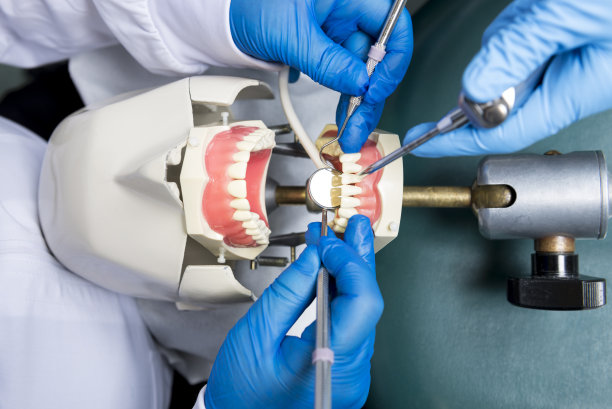Essential Precautions You Should Follow Before and After Your Dental Filling Procedure for Optimal Results
Summary: Dental fillings are essential for restoring damaged teeth, but preparation and aftercare play crucial roles in achieving optimal results. This article outlines essential precautions you should follow before and after your dental filling procedure. By understanding pre-treatment and post-treatment care, as well as knowing what to expect, you can minimize discomfort, ensure better healing, and maintain your dental health. Explore the four vital aspects, including pre-procedure nutrition, understanding the filling process, immediate post-treatment care, and long-term care tips that will empower you to take control of your dental health effectively.
1. Pre-Procedure Nutrition Considerations

What you eat before your dental filling procedure can significantly influence your experience and recovery. It鈥檚 crucial to have a balanced meal rich in nutrients that promote healing in your mouth, such as proteins, vitamins, and minerals. Foods like fish, nuts, vegetables, and whole grains can support overall oral health.
Avoid heavy, hard, or overly sticky foods that could trigger discomfort or complications during treatment. It is also advisable to steer clear of caffeine, as it may heighten anxiety levels. Furthermore, if youre receiving anesthesia during the procedure, a good rule of thumb is to refrain from eating in the hours leading up to your appointment.
Lastly, staying hydrated is vital. Drink ample water leading up to your visit, but be cautious not to overhydrate right before the procedure, especially if anesthesia will be involved, as it may cause discomfort.
2. Understanding the Filling Process
Before undergoing a dental filling procedure, it is essential to understand what to expect. Familiarizing yourself with the process helps reduce anxiety and makes you feel more prepared. Typically, a dentist begins by numbing the affected area with local anesthesia. Once numb, they will remove decay, clean the cavity, and prepare the site for the filling material.
Its beneficial to discuss with your dentist the types of filling materials available, as there are various options, including amalgam and composite resin. Each type has different aesthetics, durability, and costs, so knowing about these can help you make an informed choice.
Some patients may feel nervous about the sound and sensations that come with dental tools. It is advisable to ask your dentist about the instruments they鈥檒l use and what sounds to expect. Adequate knowledge helps alleviate fears and prepares you for the experience.
3. Immediate Post-Treatment Care Tips
After your dental filling, the first few hours are critical in ensuring your comfort and the success of the procedure. To begin with, it鈥檚 imperative to avoid eating until the anesthetic has fully worn off, as this reduces the risk of biting your tongue or cheek inadvertently.
For the first 24 hours post-procedure, it鈥檚 wise to stick to soft foods. Mild discomfort can occur, so be cautious about consuming extremely hot, cold, or spicy foods. Moreover, take over-the-counter pain relievers if you experience any discomfort as per your dentist鈥檚 advice.
Another critical aspect of immediate care is maintaining oral hygiene. While you may feel hesitant to brush or floss the area initially, it is vital to keep the mouth clean to prevent infections. Gently rinse your mouth with warm salt water after meals to soothe the area and promote healing.
4. Long-Term Care Practices for Fillings
The longevity of dental fillings largely depends on long-term oral care practices. First and foremost, you should maintain a routine of brushing twice daily and flossing at least once a day. Doing so helps prevent decay at the margins of the filling, which is crucial for its lifespan.
Regular dental check-ups are also essential. Schedule visits every six months to ensure your fillings and overall oral health are thoroughly evaluated. Your dentist will check for any signs of deterioration in the filling and can provide updates on your oral health.
Lastly, be mindful of your dietary choices and habits. Limit the consumption of sugary snacks and beverages, as they can lead to additional decay. Chewing on hard objects or ice can also pose risks to your fillings. Implementing these long-term care practices will help ensure your dental fillings last longer and perform optimally.
Summary:
Maintaining oral health goes beyond just the dental filling procedure; it starts long before and continues long after. Being proactive about nutrition, taking time to understand your treatment, ensuring immediate care, and committing to long-term dental hygiene practices are vital for optimal results with your dental fillings.
This article is compiled by Vickong Dental and the content is for reference only.



